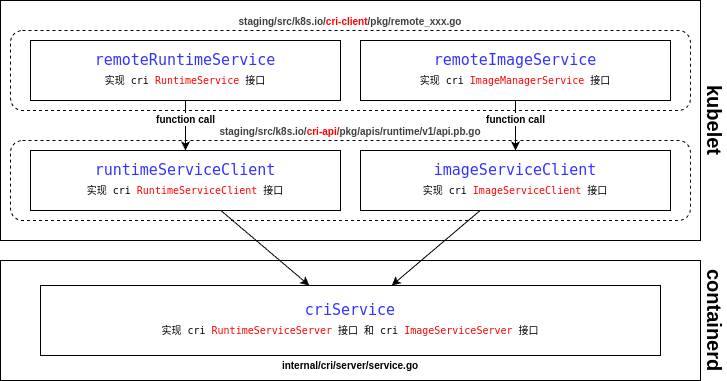关于 CRI #
CRI 全称为 Container Runtime Interface (容器运行时接口), 是 kubelet 与 容器运行时进行通讯的主要协议。
是 k8s 根据 OCI runtime-spec

cri-api 主要定义了六个接口:
staging/src/k8s.io/cri-api/
├── pkg
│ ├── apis
│ │ ├── runtime
│ │ │ └── v1
│ │ │ ├── api.pb.go {RuntimeServiceClient RuntimeServiceServer ImageServiceClient ImageServiceServer}
│ │ │ ├── api.proto
│ │ │ └── constants.go
│ │ ├── services.go {RuntimeService ImageManagerService}